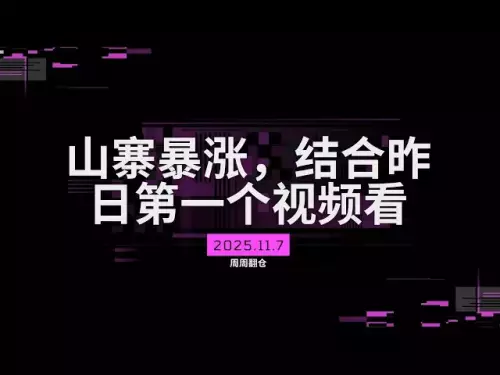-
 bitcoin
bitcoin $101752.865364 USD
-1.09% -
 ethereum
ethereum $3382.985899 USD
-1.38% -
 tether
tether $0.999658 USD
0.04% -
 xrp
xrp $2.272505 USD
-1.51% -
 bnb
bnb $989.089004 USD
0.14% -
 solana
solana $156.962612 USD
-3.08% -
 usd-coin
usd-coin $0.999776 USD
0.01% -
 tron
tron $0.290786 USD
-0.69% -
 dogecoin
dogecoin $0.174594 USD
-2.86% -
 cardano
cardano $0.560085 USD
-3.55% -
 hyperliquid
hyperliquid $40.023704 USD
-5.75% -
 chainlink
chainlink $15.324649 USD
-2.78% -
 bitcoin-cash
bitcoin-cash $493.576540 USD
-3.52% -
 zcash
zcash $571.320038 USD
-12.05% -
 stellar
stellar $0.280066 USD
-4.26%
What is the difference between spot trading and contract trading on HTX?
Spot trading on HTX involves direct crypto exchange, while contract trading uses derivatives with leverage, offering higher risks and potential rewards.
Apr 08, 2025 at 06:35 am
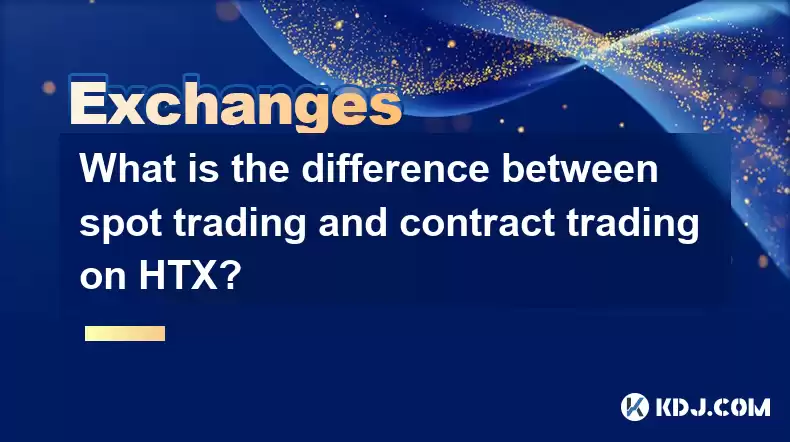
Spot trading and contract trading are two popular methods of trading cryptocurrencies on the HTX exchange. Each method has its own unique features, benefits, and risks. Understanding the differences between them can help traders make informed decisions based on their trading goals and risk tolerance.
What is Spot Trading on HTX?
Spot trading on HTX involves the direct exchange of one cryptocurrency for another at the current market price. When you engage in spot trading, you are buying or selling assets immediately, and the transaction is settled right away. This type of trading is straightforward and is often preferred by beginners due to its simplicity.
In spot trading, you own the actual cryptocurrency you purchase. For example, if you buy 1 Bitcoin (BTC) on HTX, you will have 1 BTC in your wallet. This ownership allows you to hold the asset for as long as you want, transfer it to another wallet, or use it for transactions.
To start spot trading on HTX, follow these steps:
- Log into your HTX account and navigate to the spot trading section.
- Select the trading pair you want to trade, such as BTC/USDT.
- Enter the amount you wish to buy or sell and review the order details.
- Confirm the order to execute the trade at the current market price.
What is Contract Trading on HTX?
Contract trading, also known as futures trading, involves trading contracts that derive their value from an underlying asset, such as a cryptocurrency. On HTX, contract trading allows traders to speculate on the future price movements of cryptocurrencies without owning the actual asset.
There are two main types of contract trading on HTX: perpetual contracts and delivery contracts. Perpetual contracts do not have an expiration date, allowing traders to hold positions indefinitely. Delivery contracts, on the other hand, have a set expiration date, and the contract must be settled by that date.
Contract trading on HTX offers leverage, which means traders can control a larger position with a smaller amount of capital. However, this also increases the potential for both gains and losses. For example, if you use 10x leverage to trade a Bitcoin contract, a small price movement can result in significant profits or losses.
To start contract trading on HTX, follow these steps:
- Log into your HTX account and navigate to the contract trading section.
- Select the contract you want to trade, such as BTC perpetual contract.
- Choose your leverage and enter the amount you wish to trade.
- Set your entry and exit prices and any stop-loss or take-profit orders.
- Confirm the order to open your position.
Key Differences Between Spot and Contract Trading
The primary difference between spot and contract trading on HTX lies in the nature of the assets being traded. Spot trading involves the direct exchange of cryptocurrencies, while contract trading involves trading derivatives based on the price of cryptocurrencies.
Another significant difference is the use of leverage. Contract trading on HTX allows for leverage, which can amplify both potential profits and losses. In contrast, spot trading does not offer leverage, meaning the gains and losses are limited to the amount of capital invested.
Risk management also differs between the two types of trading. In spot trading, the risk is limited to the amount of cryptocurrency you own. If the market moves against you, your losses are capped at the value of your holdings. In contract trading, however, the use of leverage can lead to losses exceeding your initial investment, making risk management crucial.
Benefits of Spot Trading on HTX
Spot trading on HTX offers several benefits, particularly for beginners and long-term investors. One of the main advantages is simplicity. Spot trading is easy to understand and execute, making it accessible to traders of all experience levels.
Another benefit is ownership. When you buy a cryptocurrency through spot trading, you own the asset outright. This ownership allows you to hold the cryptocurrency for as long as you want, transfer it to another wallet, or use it for transactions.
Spot trading also offers lower risk compared to contract trading. Since there is no leverage involved, your potential losses are limited to the amount you invest. This makes spot trading a safer option for those who are risk-averse.
Benefits of Contract Trading on HTX
Contract trading on HTX offers several advantages, particularly for experienced traders and those looking to capitalize on short-term price movements. One of the main benefits is leverage. Contract trading allows traders to control larger positions with a smaller amount of capital, potentially leading to higher returns.
Another advantage is flexibility. Contract trading on HTX offers a variety of contract types, including perpetual and delivery contracts, allowing traders to choose the option that best suits their trading strategy. Additionally, contract trading enables traders to take both long and short positions, allowing them to profit from both rising and falling markets.
Contract trading also provides access to advanced trading tools on HTX, such as stop-loss and take-profit orders. These tools can help traders manage their risk and automate their trading strategies, making it easier to execute trades and manage positions.
Risks of Spot Trading on HTX
While spot trading on HTX is generally considered less risky than contract trading, there are still some risks to be aware of. One of the main risks is market volatility. Cryptocurrency prices can be highly volatile, and sudden price movements can result in significant losses if you are not prepared.
Another risk is liquidity. Some cryptocurrencies on HTX may have lower trading volumes, making it more difficult to buy or sell large amounts without affecting the market price. This can lead to slippage, where the executed price differs from the expected price.
Security is also a concern when spot trading on HTX. While HTX takes measures to secure user funds, there is always a risk of hacking or fraud. It is important to use strong passwords, enable two-factor authentication, and keep your private keys secure to minimize this risk.
Risks of Contract Trading on HTX
Contract trading on HTX comes with higher risks compared to spot trading, primarily due to the use of leverage. One of the main risks is amplified losses. If the market moves against your position, the use of leverage can result in losses exceeding your initial investment.
Another risk is liquidation. If the market moves significantly against your position, your account may be liquidated to cover the losses. This can happen quickly, especially with high leverage, and can result in the loss of your entire position.
Complexity is also a risk factor in contract trading. The use of derivatives and leverage can be difficult to understand and manage, especially for beginners. It is important to have a solid understanding of contract trading and risk management before engaging in this type of trading on HTX.
Frequently Asked Questions
Q: Can I switch between spot and contract trading on HTX?A: Yes, you can switch between spot and contract trading on HTX by navigating to the respective sections of the platform. However, keep in mind that the funds used for spot trading and contract trading are typically held in separate wallets, so you may need to transfer funds between wallets to switch between the two types of trading.
Q: Is it possible to trade the same cryptocurrency on both spot and contract markets on HTX?A: Yes, you can trade the same cryptocurrency on both spot and contract markets on HTX. For example, you can buy Bitcoin (BTC) on the spot market and also trade BTC perpetual contracts on the contract market. This allows you to diversify your trading strategies and take advantage of different market conditions.
Q: How does HTX handle fees for spot and contract trading?A: HTX charges different fees for spot and contract trading. For spot trading, HTX typically charges a maker fee and a taker fee, which vary depending on your trading volume and whether you are using HTX's native token, HT. For contract trading, HTX charges a trading fee based on the notional value of the contract, as well as funding fees for perpetual contracts. It is important to review HTX's fee schedule to understand the costs associated with each type of trading.
Q: Can I use the same account for both spot and contract trading on HTX?A: Yes, you can use the same HTX account for both spot and contract trading. However, as mentioned earlier, the funds for spot and contract trading are typically held in separate wallets within your account. You will need to transfer funds between these wallets to switch between spot and contract trading.
Disclaimer:info@kdj.com
The information provided is not trading advice. kdj.com does not assume any responsibility for any investments made based on the information provided in this article. Cryptocurrencies are highly volatile and it is highly recommended that you invest with caution after thorough research!
If you believe that the content used on this website infringes your copyright, please contact us immediately (info@kdj.com) and we will delete it promptly.
- Ripple (XRP) in 2026: Hold or Fold? A Look at XRP's Future and Emerging DeFi Alternatives
- 2025-11-08 18:35:01
- Zcash ZEC Coin Price Explosion: From Privacy Niche to Center Stage
- 2025-11-08 18:55:01
- Berachain Price Prediction: Navigating the Honeycomb Hype in Crypto
- 2025-11-08 18:55:01
- Arthur Hayes, Gold, and Bitcoin: A Modern Monetary Trinity?
- 2025-11-08 19:15:01
- Shiba Inu's Next Move: Navigating a Shifting Market
- 2025-11-08 19:20:01
- Pakistan's Crypto Crossroads: Balancing Opportunity with Asset-Backed Realities
- 2025-11-08 19:20:01
Related knowledge
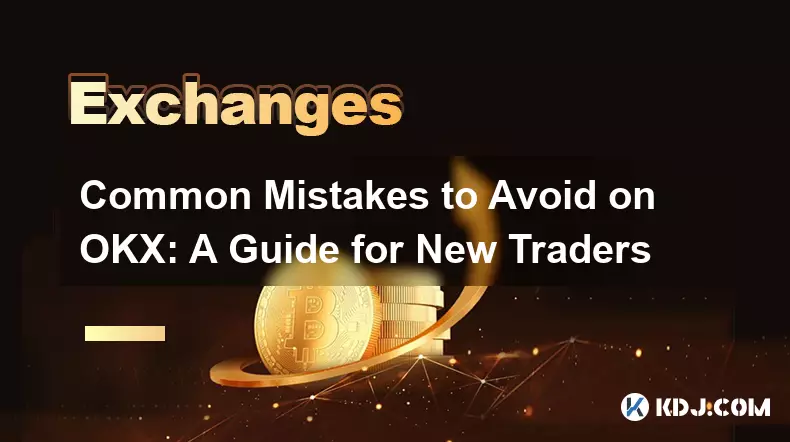
Common Mistakes to Avoid on OKX: A Guide for New Traders
Nov 04,2025 at 03:37pm
Understanding the Interface Before Trading1. New traders often jump into placing orders without fully exploring the OKX platform layout. Taking time t...

OKX TradingView Integration: A Guide to Advanced Chart Analysis
Nov 02,2025 at 03:37am
OKX and TradingView: Bridging the Gap for Professional Traders1. OKX, one of the leading cryptocurrency exchanges, has integrated with TradingView to ...

Finding Your OKX Deposit Address: A Quick and Safe Guide
Nov 05,2025 at 01:15pm
Finding Your OKX Deposit Address: A Step-by-Step Process1. Log into your OKX account using your registered credentials. Ensure you are accessing the o...
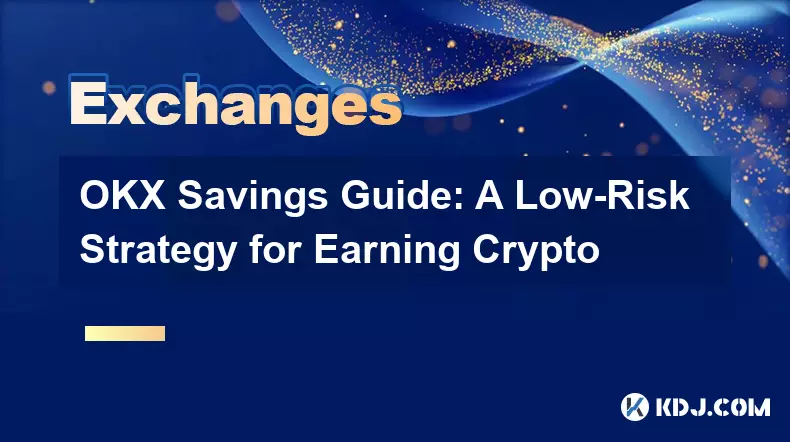
OKX Savings Guide: A Low-Risk Strategy for Earning Crypto
Nov 05,2025 at 06:55am
Understanding OKX Savings and Its Role in Crypto Earnings1. OKX Savings offers users a straightforward method to earn passive income by leveraging idl...
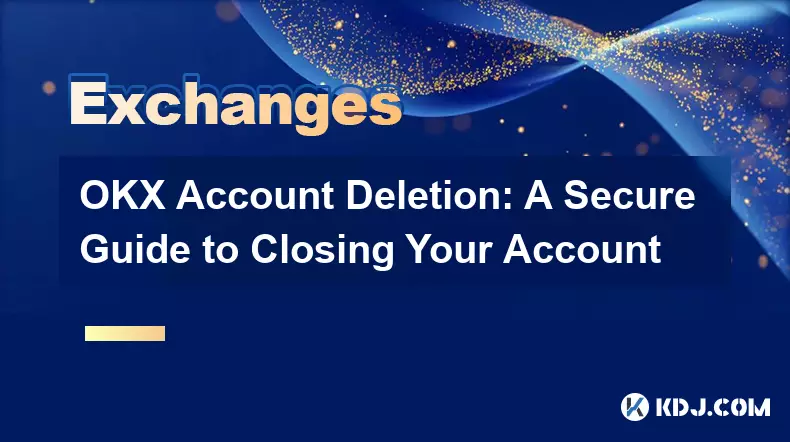
OKX Account Deletion: A Secure Guide to Closing Your Account
Nov 05,2025 at 08:44am
Understanding the Implications of Account Closure1. Closing your OKX account permanently removes access to all associated trading features, including ...
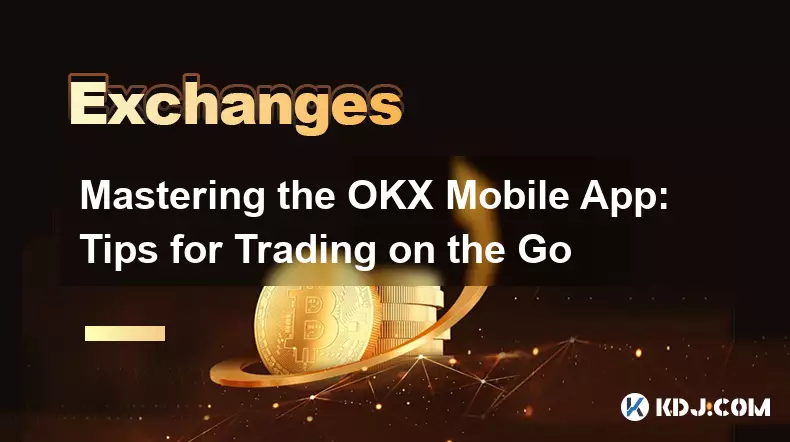
Mastering the OKX Mobile App: Tips for Trading on the Go
Nov 05,2025 at 01:19am
Streamlined Navigation for Efficient Trading1. The OKX mobile app features a clean and intuitive interface that allows traders to access key functions...

Common Mistakes to Avoid on OKX: A Guide for New Traders
Nov 04,2025 at 03:37pm
Understanding the Interface Before Trading1. New traders often jump into placing orders without fully exploring the OKX platform layout. Taking time t...

OKX TradingView Integration: A Guide to Advanced Chart Analysis
Nov 02,2025 at 03:37am
OKX and TradingView: Bridging the Gap for Professional Traders1. OKX, one of the leading cryptocurrency exchanges, has integrated with TradingView to ...

Finding Your OKX Deposit Address: A Quick and Safe Guide
Nov 05,2025 at 01:15pm
Finding Your OKX Deposit Address: A Step-by-Step Process1. Log into your OKX account using your registered credentials. Ensure you are accessing the o...

OKX Savings Guide: A Low-Risk Strategy for Earning Crypto
Nov 05,2025 at 06:55am
Understanding OKX Savings and Its Role in Crypto Earnings1. OKX Savings offers users a straightforward method to earn passive income by leveraging idl...

OKX Account Deletion: A Secure Guide to Closing Your Account
Nov 05,2025 at 08:44am
Understanding the Implications of Account Closure1. Closing your OKX account permanently removes access to all associated trading features, including ...

Mastering the OKX Mobile App: Tips for Trading on the Go
Nov 05,2025 at 01:19am
Streamlined Navigation for Efficient Trading1. The OKX mobile app features a clean and intuitive interface that allows traders to access key functions...
See all articles





















![The Graph Price Prediction [GRT Crypto Price News Today] The Graph Price Prediction [GRT Crypto Price News Today]](/uploads/2025/11/07/cryptocurrencies-news/videos/690d4df44fe69_image_500_375.webp)



